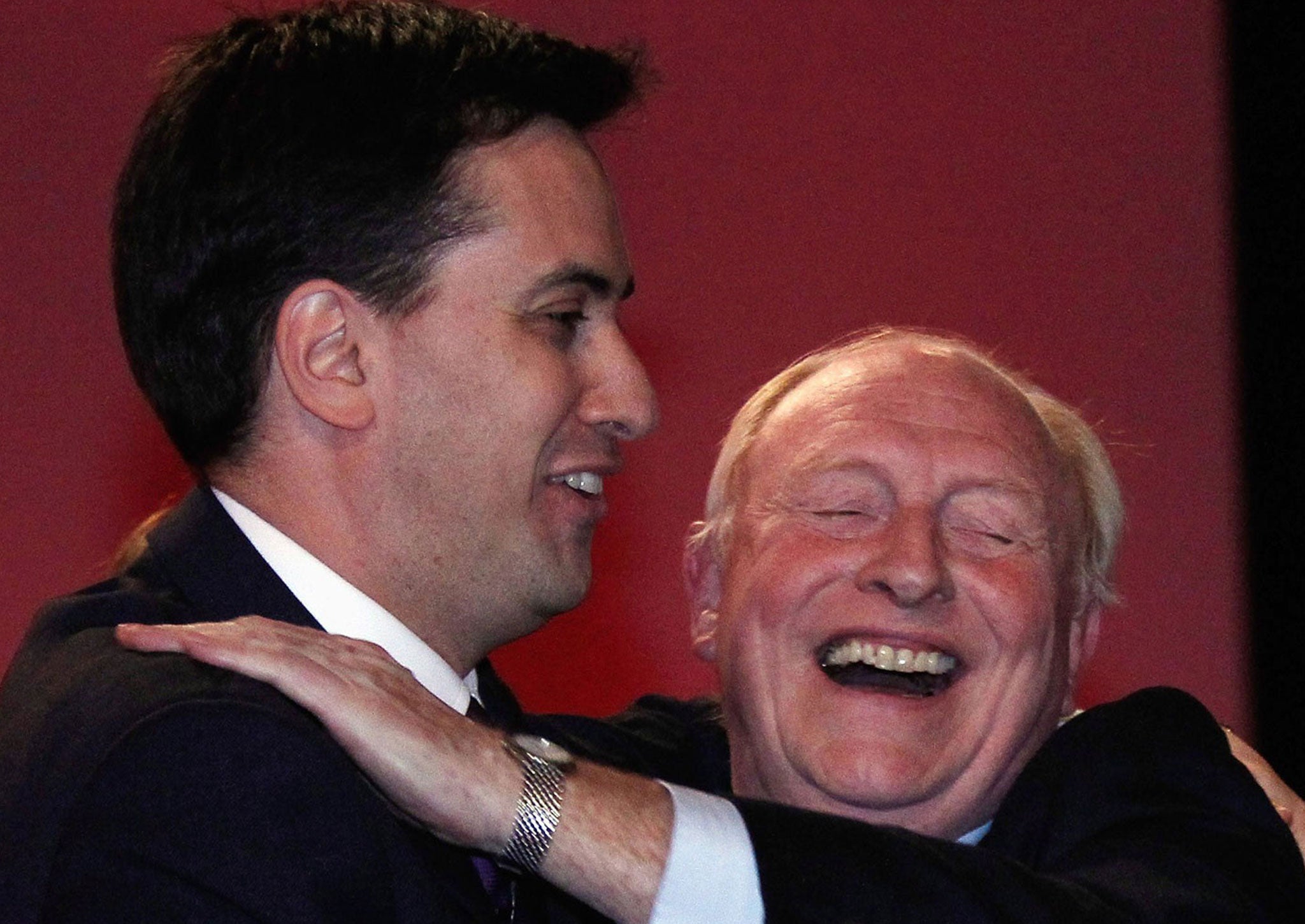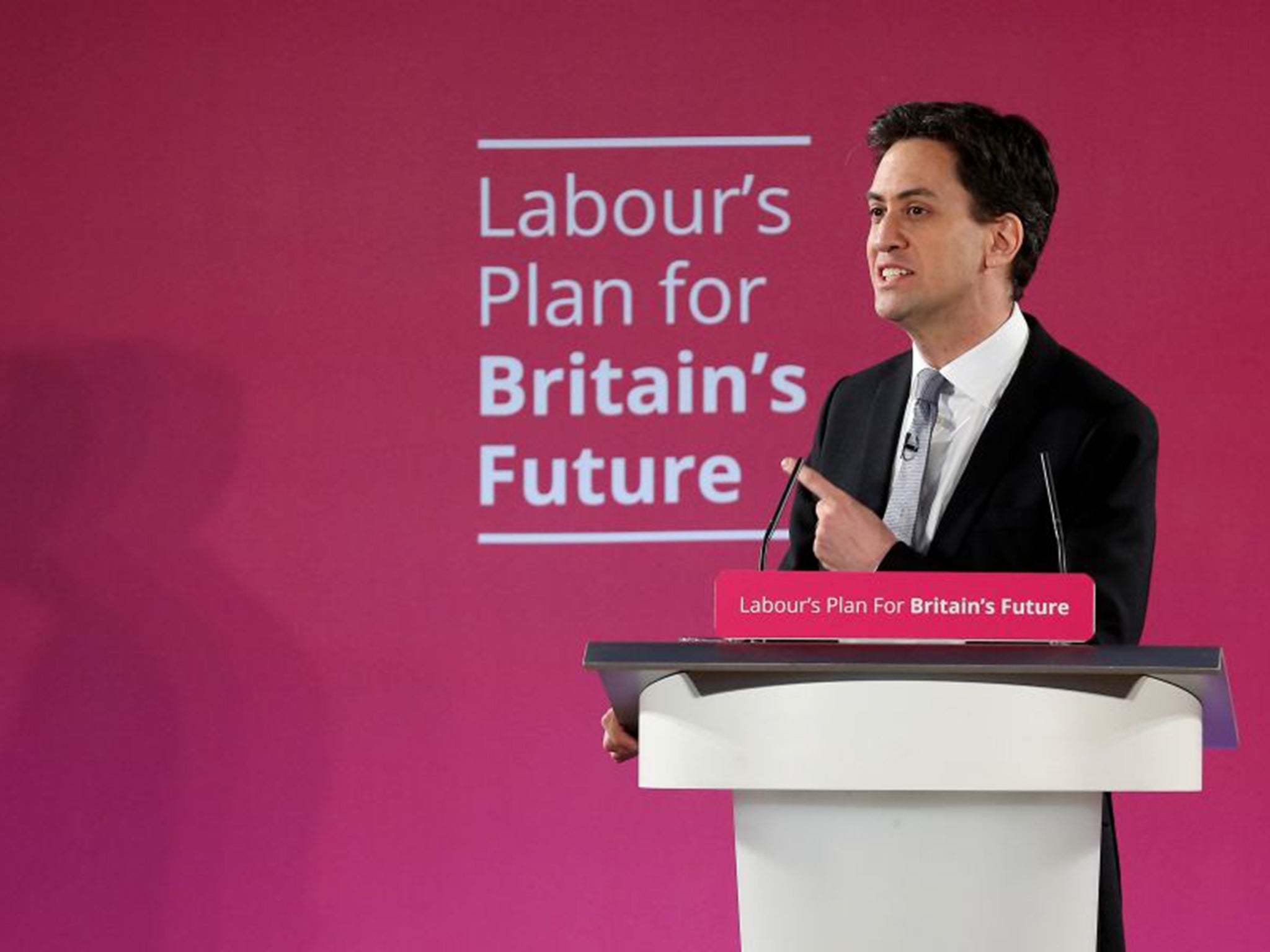Don’t mistake Ed Miliband for Neil Kinnock — he is in a far better place
The Tories are failing to win the battle of ideas, while the tide is moving increasingly in Miliband's favour


Your support helps us to tell the story
From reproductive rights to climate change to Big Tech, The Independent is on the ground when the story is developing. Whether it's investigating the financials of Elon Musk's pro-Trump PAC or producing our latest documentary, 'The A Word', which shines a light on the American women fighting for reproductive rights, we know how important it is to parse out the facts from the messaging.
At such a critical moment in US history, we need reporters on the ground. Your donation allows us to keep sending journalists to speak to both sides of the story.
The Independent is trusted by Americans across the entire political spectrum. And unlike many other quality news outlets, we choose not to lock Americans out of our reporting and analysis with paywalls. We believe quality journalism should be available to everyone, paid for by those who can afford it.
Your support makes all the difference.Amid a mountain of otherwise inconclusive findings, every single poll reports that Ed Miliband’s personal ratings are abysmal. Not surprisingly, senior Conservatives assume that Miliband is an equivalent of Neil Kinnock, a Labour leader who lost two elections and struggled to appear prime ministerial.
The Tory campaign is based partly around projecting David Cameron as a formidable leader, this week presiding over post-Paris security issues before spending time with President Obama in Washington. In a foggy contest this particular message could not be clearer: compare Cameron with his puny, Kinnock-like opponent.
The Conservatives’ focus is understandable but misconceived. In important respects Miliband is unrecognisably different from the former leader and the contrasts show why this election is so close compared with those that Labour fought and lost in 1987 and 1992.
Without question, Miliband and Kinnock have both experienced the trauma of personal unpopularity in the polls. For any leader low ratings are a shock and a blow to self-confidence. Kinnock was a charismatic and popular public figure before he became his party’s leader. Indeed he was much more of a spell-binding performer than Miliband will ever be. But after nine turbulent years leading the party in an impossibly daunting context, Kinnock was unpopular. Years later he told me that he came to realise the rejection was partly personal. Some voters did not like him.
Miliband has also had to adapt to voters’ disdain. In his relatively sheltered political apprenticeship, he rarely read or heard a critical word about his personality and career. He was adored when he spoke without notes at the annual Fabians’ conference and at party fringe meetings. But then he became leader and discovered, like Kinnock, that he did not connect with voters.
At which point the similarities end. By 1992, when Kinnock fought his second election, his confidence as a leader had been challenged in other significant ways too. Kinnock had faced the even bigger trauma of changing his party and of changing the way he personally thought.
When he became leader, in 1983, an incomparably darker starting point compared with Miliband’s, Kinnock was a passionate believer in unilateral nuclear disarmament, relatively extensive state ownership, more powers for trade unions, and higher taxes. He once said that if he ever changed his mind over unilateral disarmament, his wife should kick him out. After the 1987 election he made the dramatic shift, along with several other reforms, as the political tide in the UK rolled rightwards.
There was a heroic dimension to Kinnock’s leadership but the public image was of a figure in never-ending internal battles, and sometimes the battles were with his own convictions. The former Conservative Chancellor Nigel Lawson commented in 1991, when the polls suggested that Labour were well ahead, the Conservatives were still winning the battle of ideas and so would win the election. He was right.

Not even the most committed Conservative would make such a claim now. Conversely, Miliband feels, with some justification, that the tide of events is moving with his ideological instincts. The still unresolved banking crisis, the stark failings of private monopolies, the fall in living standards at a time of economic growth, the chaos arising from some of the NHS reforms, at least allow Miliband to sense a degree of vindication.
The other big difference is that Miliband has spent most of his career in government, whereas Kinnock had never been close to it. On one level this is bound to give Miliband more confidence. Power is familiar to him, from the décor of No 10 to the rhythms of modern government. But because he has done little to question Cameron/Osborne’s narrative of the recent past, most specifically the claim that the global financial crash was the responsibility of the last Labour government, Miliband makes no reference to his experience of power.
There is another potential negative. His connection with power makes him seem to some as if he is part of the “Westminster bubble”, and thus no different from the other main party leaders.
This is the ironic twist. In parts of the country the ideological tide moves towards him, but other parties might benefit. In Scotland Miliband was a peripheral figure in the referendum campaign, although many of his instincts chimed with those seeking radical change from post-1979 Westminster orthodoxies. Polls suggest that in parts of England the Greens and even Ukip benefit from some of the currents that move away from the old fashionable assumptions about the light-touch role of the state and the benefits of unfettered free markets.
In foreign affairs the assumption that the UK always stands shoulder to shoulder with the US no longer applies. In different ways, an acceptance of post-1979 orthodoxies led both Tony Blair and Gordon Brown towards Shakespearean darkness in the form of Iraq and the banking crisis.
Part of Miliband’s pre-election task is to convince those contemplating voting for the SNP or the Greens to recognise that his views are close to theirs while reassuring key voters in England that he is not Red Ed. This should not be an impossible contortion, although Miliband has struggled to pull it off so far. The agonies involved are nowhere near as great as those endured by Kinnock. Kinnock was doomed never to win. Miliband might become Prime Minister and had a chance to do so from the outset.
Join our commenting forum
Join thought-provoking conversations, follow other Independent readers and see their replies
Comments